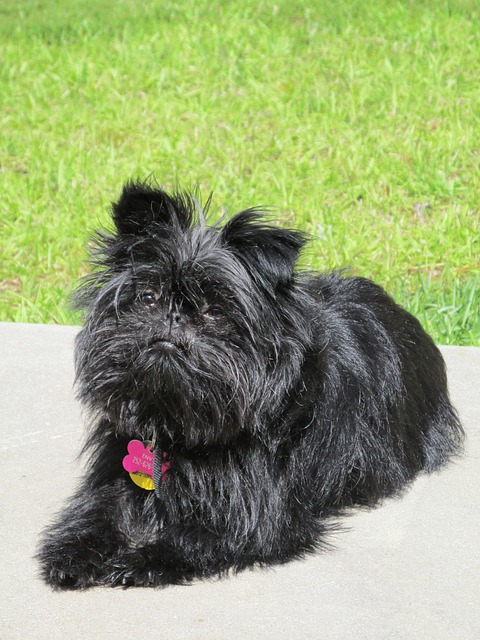


The Affenpinscher is a small, toy-sized dog with a distinctive appearance and a lively, confident personality. Known for its "monkey-like" expression, the Affenpinscher is a curious, playful, and sometimes stubborn companion. Despite its compact size, this breed has a big personality and a strong sense of independence. Originally bred as a ratter and companion dog, the Affenpinscher is intelligent and alert, making it an excellent watchdog. They are ideal for people looking for a lively, affectionate pet in a smaller package.
The Affenpinscher's history dates back to the 17th century in Germany, where the breed was developed to hunt and control pests like rats and mice. The name "Affenpinscher" means "monkey dog," which reflects its facial expression and playful demeanor. It is believed that the Affenpinscher was created by crossbreeding small terriers and pinschers, with the goal of producing a small, energetic dog suitable for rodent control. Over time, the breed became more of a companion dog, particularly in Europe. The Affenpinscher was officially recognized by the American Kennel Club (AKC) in 1936 and has since gained popularity as a toy breed in various parts of the world.
The Affenpinscher is a small, sturdy dog, typically standing between 9 to 12 inches tall at the shoulder and weighing between 7 to 10 pounds. The breed has a distinctive wiry, rough coat that is most commonly black, although it can also come in other colors such as gray, red, and tan. Their coat, which gives them a scruffy yet charming appearance, requires regular grooming to prevent matting. Affenpinschers have a unique face with a short muzzle, large dark eyes, and an expression that often resembles a monkey. Their ears are typically either upright or slightly tipped, and their tail is carried high and often docked in some countries. Despite their small size, they have a compact and robust build, exuding strength and confidence.
The Affenpinscher is known for its confident, lively, and sometimes mischievous temperament. They are curious and inquisitive dogs, always exploring their surroundings and looking for new experiences. While they are affectionate and loyal to their families, they can be a bit independent and stubborn, making them more challenging to train compared to other toy breeds. Affenpinschers are alert and can be wary of strangers, making them excellent watchdogs, but they are generally good with children and other pets when properly socialized. Despite their small stature, they have a bold personality and are not afraid to stand their ground when needed.
Although the Affenpinscher is a small breed, it still requires regular exercise to keep it mentally and physically stimulated. Daily walks, playtime, and opportunities to explore are important to keep them healthy and happy. They enjoy interactive play, including games like fetch and hide-and-seek, and can also engage in dog sports such as agility or obedience training. Because of their high energy levels, it’s important to provide them with daily outlets for their natural curiosity. Despite their small size, Affenpinschers should not be overlooked when it comes to exercise, as they can easily become bored or destructive if not given enough stimulation.
The Affenpinscher is an intelligent breed, but they can also be independent and stubborn, making training a bit more challenging. Positive reinforcement methods, such as treats and praise, work best when training them. Early socialization is crucial to help them become well-mannered and comfortable around new people, animals, and environments. Socialization also helps prevent the breed from becoming overly shy or aggressive toward strangers. Consistent, short, and engaging training sessions are key, as the Affenpinscher may lose interest in longer sessions. With patience and consistency, the Affenpinscher can be trained to learn basic commands and tricks.
The Affenpinscher is generally a healthy breed, but like all dogs, it can be prone to certain health conditions. Common issues include patellar luxation (dislocated kneecaps), hip dysplasia, and dental problems, particularly due to the small size of their mouth. Regular veterinary check-ups, a balanced diet, and maintaining a healthy weight are essential for the breed’s overall health. Their wiry coat requires regular grooming, including brushing to prevent matting and occasional hand-stripping to maintain the texture of their fur. Regular dental care is also important, as small breeds are prone to dental issues. Keeping their ears clean and free from infections is another essential part of their care routine.
The average lifespan of an Affenpinscher is typically around 12 to 14 years, with some living even longer with proper care. Like all breeds, their lifespan can be influenced by factors such as genetics, diet, exercise, and overall health management. Regular vet visits, a healthy diet, and proper dental care can help extend their life and ensure they remain active and healthy throughout their years.
© copyright Dog Compendium 2024 - 2026